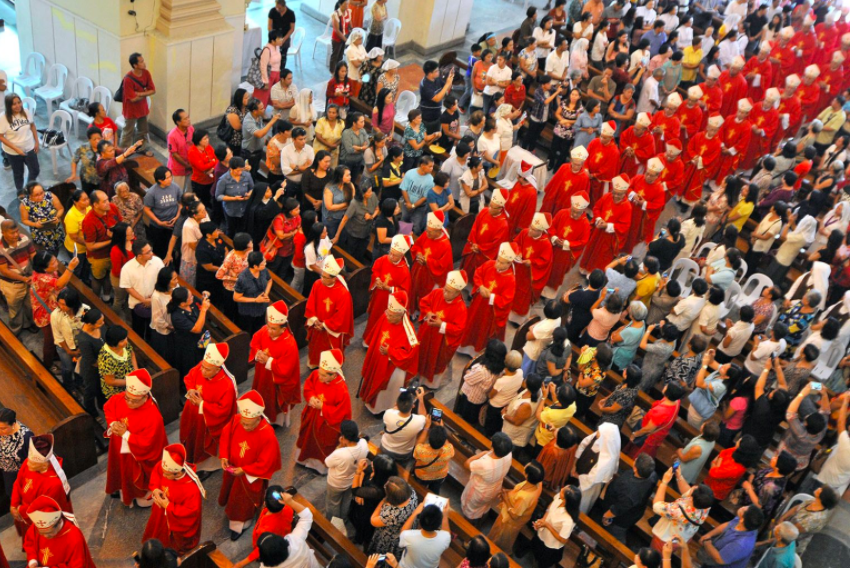MANILA, Philippines — The Catholic Bishops’ Conference of the Philippines (CBCP) is calling for prayers amid the recent signing of the highly controversial Anti-Terror Act of 2020, saying the return of warrantless detention is reminiscent of the arrest, search and seizure orders during martial law.
In a pastoral letter and call to prayer signed on July 16 by its acting president, Caloocan Bishop Pablo Virgilio David, the CBCP said it received a letter from Cardinal Charles Maung Bo, Archbishop of Yangon, Myanmar and President of the Federation of Asian Bishops’ Conferences, requesting for prayers for Hong Kong on the signing of its new national security law.
The CBCP said Cardinal Bo explained in his letter that the new law poses a threat to the basic freedoms and human rights of the people in Hong Kong and that it potentially undermines their freedom of expression.
“While we responded with an assurance to His Eminence, Cardinal Bo, that we would join him in praying for the people of Hong Kong, we also asked him to pray for the Philippines and explained why we are as seriously in need of prayers as the people of Hong Kong. Like them, we are also alarmed about the recent signing into law of the Anti-Terror Act of 2020,” the CBCP said.
The CBCP added it is “still in disbelief” on how the law was fast-tracked and approved in Congress while the country’s attention was focused on the coronavirus disease 2019 pandemic.
It noted that the lawmakers did not seem to care that many of the people they are representing are against it.
“The dissenting voices were strong but they remained unheeded. None of the serious concerns that they expressed about this legislative measure seemed to be of any consequence to them,” said the CBCP.
“Alas, the political pressure from above seemed to weigh more heavily on our legislators than the voices from below. It only made more evident the blurring of lines between legislative and the executive branches of our government,” it added.
The CBCP further sounded the alarm on the anti-terror law, citing those involved in social advocacies who had been accused of being communists, as well as bishops and priests who were “falsely charged” by the Philippine National Police with sedition and inciting to sedition, Senator Leila De Lima who remains in jail for what she calls “trumped-up charges,” media personalities harassed with criminal charges, and the shutdown of ABS-CBN.
The CBCP added that the return of warrantless detention through the anti-terror law reminds of the initial actions of late dictator Ferdinand Marcos in 1972 that eventually led to the fall of democracy and the rise of a dictatorial regime.
It said it was from the legalization of the arrest, search and seizure orders that the country gradually sank into authoritarian rule.
“Knowing how, in just the recent past, the law has been used too many times as a weapon to suppress legitimate dissent and opposition, we cannot but share in the apprehensions expressed by the lawyers and ordinary citizens that filed the petition against the said infamous law before the Supreme Court,” the CBCP said.
“While a semblance of democracy is still in place and our democratic institutions somehow continue to function, we are already like the proverbial frog swimming in a pot of slowly boiling water,” it added.
